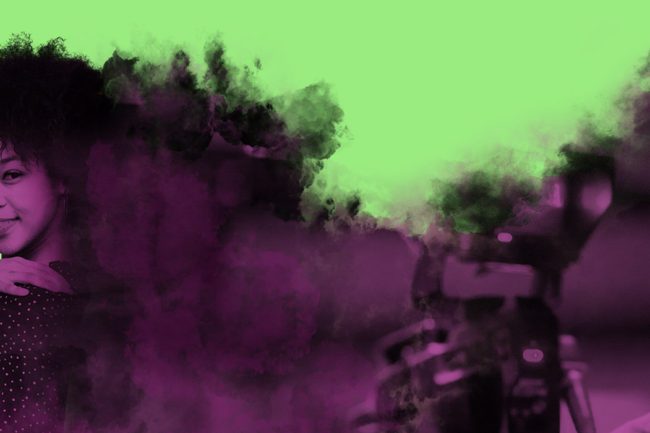Addressing Sexual Harassment in the UK Film and Television Industries
Please note: this study is no longer open to participants. Many thanks to all those who have come forward. A report on the findings will be published in summer 2023.
This page provides information about participating in an interview-based research study on sexual harassment in the UK film and television industry. For an overview of the study and how to participate, you can watch this video, or read the study’s information document. An overview of study is given below.
Download a transcript of this video. This study is now open to participants from all areas of the UK film and television industry, not just the high-end television industry as described in this video.
About the study
The aims of the study are to shed light on people’s experiences of sexual harassment in the industry and the impacts of this; to illuminate what is needed to support people to report harassment, or what people’s experiences were if they did try to report this; and to explore whether current industry initiatives to address sexual harassment are likely to be effective.
This study is funded by the Screen Industries Growth Network (SIGN) at the University of York, through Research England.
Who is eligible to participate?
In order to be eligible to participate in this study:
- You need to have been working (on a paid or voluntary basis) in the film or television industry in the UK when you experienced (or think you may have experienced) sexual harassment, violence, or misconduct from someone at work. Sexual harassment can be overt – for example, sexualised comments, unwanted touching, or unwanted sexual approaches (including assault). But it can also take more subtle forms, such as someone sharing details of their sex life or asking intrusive questions. It might be an experience at work where something just felt weird and wrong, and you couldn’t put your finger on why. Or, you might have noticed people at work behaving like this towards others. Witnessing these behaviours might have affected your own experience of the workplace – perhaps you feel intimidated or unsafe at work as a result
- The experience needs to have happened since January 2018, or you need to have attempted to report it to someone in your workplace since January 2018. This is because the lead researcher on this study, Dr Anna Bull, is particularly interested in what – if anything – has changed in recent years, since #MeToo
- You need to be aged 18 or over
Anna would like to speak to people of all gender identities and sexualities. She is particularly interested to hear from people from marginalised identities.
About the researcher
Dr Anna Bull is a lecturer at the University of York. She has been carrying out research on sexual harassment since 2017 as well as activism in this area since 2015. Most of her research has been on sexual harassment in higher education, through her work with campaign and research organisation The 1752 Group.
About the interview process
If you choose to participate in this research, you will be interviewed over Zoom at a time that is convenient for you. (Please see the information document, or the video above, for accessibility options). Anna will send you the interview questions in advance in case you want to look over them. All questions are optional, so there’s no need to talk about anything you’d rather not discuss.
She will carry out the interviews herself. However, if you are trans*, non-binary or gender queer and would prefer to be interviewed by a non-cisgender person, then Anna’s transmasculine colleague can carry out the interview if you wish.
If you are from a racially minoritised group and you’d prefer to be interviewed by another person of colour, Anna’s colleague Adrija Dey from the University of Westminster can carry out the interview if you wish.
Confidentiality
We know confidentiality is an extremely important concern for many people who have experienced sexual harassment or violence. Full details of the processes to ensure confidentiality are provided in the study’s information document.
How to participate
If you would like to participate, please email Anna to express your willingness to participate at [email protected].
Support and advice services
It is possible that being interviewed for this study will be distressing as you may choose to recount experiences that have been difficult. If this is the case, we recommend the following support and advice services:
- Legal advice for women: Rights of Women have a free legal advice helpline for women in England and Wales experiencing sexual harassment at work. If you are in Scotland, the Scottish Women’s Rights Centre can give legal advice if you are experiencing harassment at work
- Sexual violence/harassment support for women: You can call the Rape Crisis national helpline anonymously and confidentially to discuss any experience of sexual harassment or sexual violence. The helpline is open from 12:00-14:30 and 19:00-21:30 every day of the year, and Monday to Friday 15:00-17:30. The phone number is 0808 802 9999. Some local Rape Crisis centres offer free counselling or other support services. Find your local Rape Crisis centre
- Sexual harassment/violence support for all genders: The Survivors’ Trust have information about local centres that offer counselling and other support services, including advocacy. Find your local centre
- Specific industry support: The Film and TV Charity have a 24/7 Support Line on 0800 054 0000 to talk through professional or emotional issues. Please note, this is not a specialist sexual harassment service
This project is part of:
-

Research
Investigating the challenges facing the screen industries and devising evidence-based interventions





